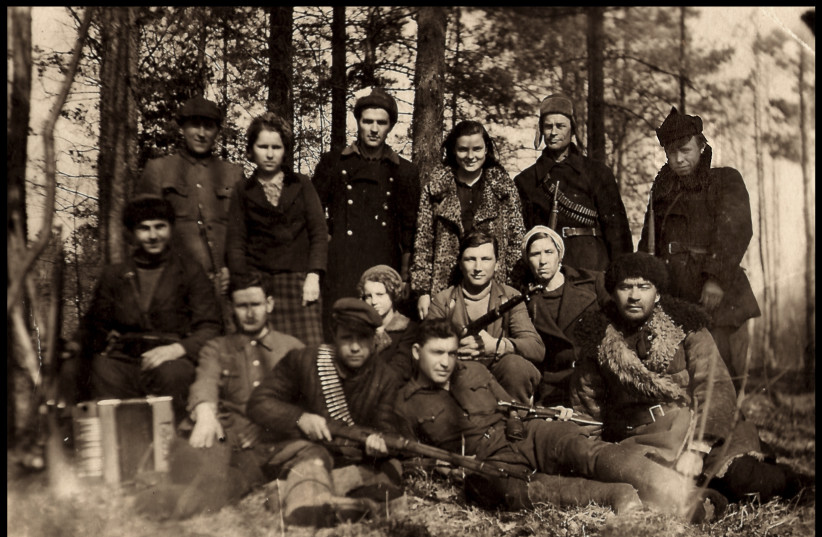Tzadik, directed by Sergey Ursulyak, is a sprawling historical epic from Russia that deals with the rescue of a group of Jewish survivors by a Russian soldier in the forests of Belarus during World War II. It opens throughout Israel on April 20 and was also shown in some of the Holocaust Remembrance Day programs.
It’s based on an inspiring true story, and the action-packed film, which runs 140 minutes and is in Russian, Yiddish and Hebrew, is very much Russian-style cinema, with pounding music and unsubtly staged drama.
The movie, which is set in the forests of Belarus, tells a story similar to Edward Zwick’s Defiance, which looked at the Bielski brothers, who rescued Jews in the region that is now Belarus as well. The twist in Tzadik is that the hero is a gentile Russian soldier, Nikolay Kiselyov, who simply chose to do the right thing, and who was honored posthumously for his heroism, years after his death, by being included in the Righteous Among the Nations at Yad Vashem.
The story of a gentile Russian soldier helping Jews during the Holocaust
Aleksandyr Yatsenko, best known for the film Arrhythmia, in which he played a troubled paramedic, stars as Kiselyov and gives a wonderful, low-key performance in the lead role, portraying Kiselyov as the man you would most like to run into if you were on the run.
Kiselyov was a student who was drafted into the Red Army and captured by the Nazis. As the film opens, he is managing to survive in prison camp run by a notoriously sadistic commander and grabs the opportunity to escape. After fleeing, he joins up with Soviet partisans in Nazi-occupied Belarus. He became the head of a detachment of the Mstitel partisan battalion in the forests near Minsk in 1942.

Nearby, the Nazis had liquidated the Jewish ghetto in Dolginovo. Thousands of Jews were rounded up and killed, and a few hundred survivors managed to make their way to the forest where Kiselyov and his men were living. He made it his mission to rescue these Jews in spite of the fact that the group included elderly people who could barely walk and children who couldn’t keep quiet. The presence of these hundreds of refugees presented logistical difficulties as well, since they had to be fed and clothed. But Kiselyov insisted on taking them in and set off to lead them to safety behind Soviet lines, nearly 1,500 kilometers away.
In addition to Kiselyov, the film features a large cast of characters, mostly the Jewish survivors, each of whom has a story of his or her own. There is a rabbi whom Kiselyov convinces to tell his flock that it is of lifesaving urgency that they should not sing their prayers loudly and should work on the Sabbath. A young couple falls in love, and there is a wedding in the forest. Another young woman, who was raped by soldiers, is withdrawn at first but then comes to life as she learns to fight with firearms and care for the children. An old woman simply cannot keep walking, and so on.
In a story line that continues up to about 20 years ago, Moshe, a young man who holds on to a precious treasure throughout the war, is approached decades later by a researcher who wants to hear the story of Kiselyov and these survivors, and the ornery older man refuses at first to cooperate.
Moshe is played as a youth by Mark Eydelshteyn and in old age by Doval’e Glickman, whom audiences will remember as the father in the series Shtisel. Glickman is one of Israel’s most beloved veteran actors, who starred in such classics as The Troupe and is known for the television series Zehu Ze! and Stockholm.
Tzadik is a movie for those who are particularly interested in stories of the partisans and Jews in this era; others may find it too long for their taste. But Yatsenko gives an engaging performance in the lead as a man who never expected to become a hero but rose to the challenge, and this helps the movie transcend some of its melodramatic scenes.
